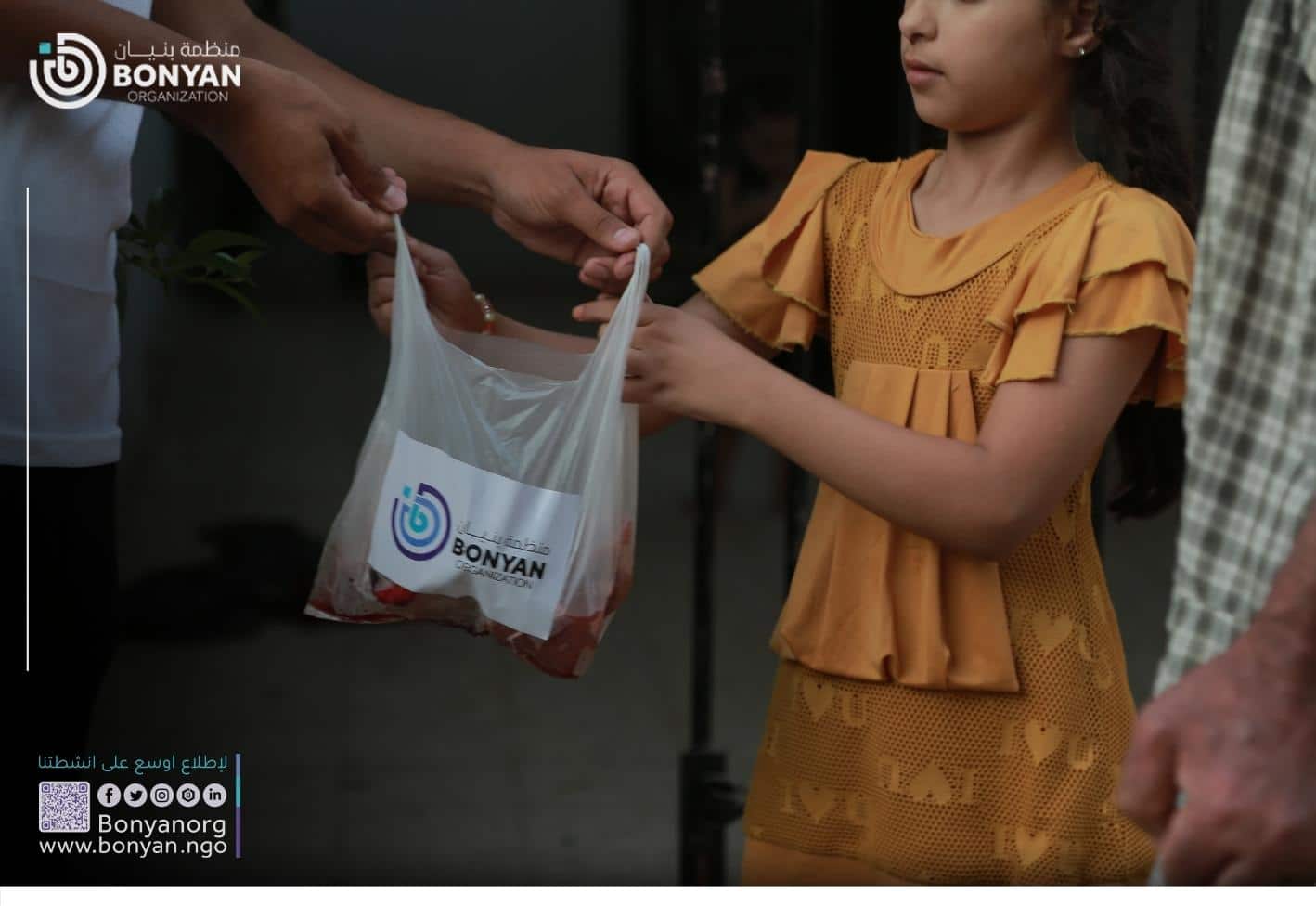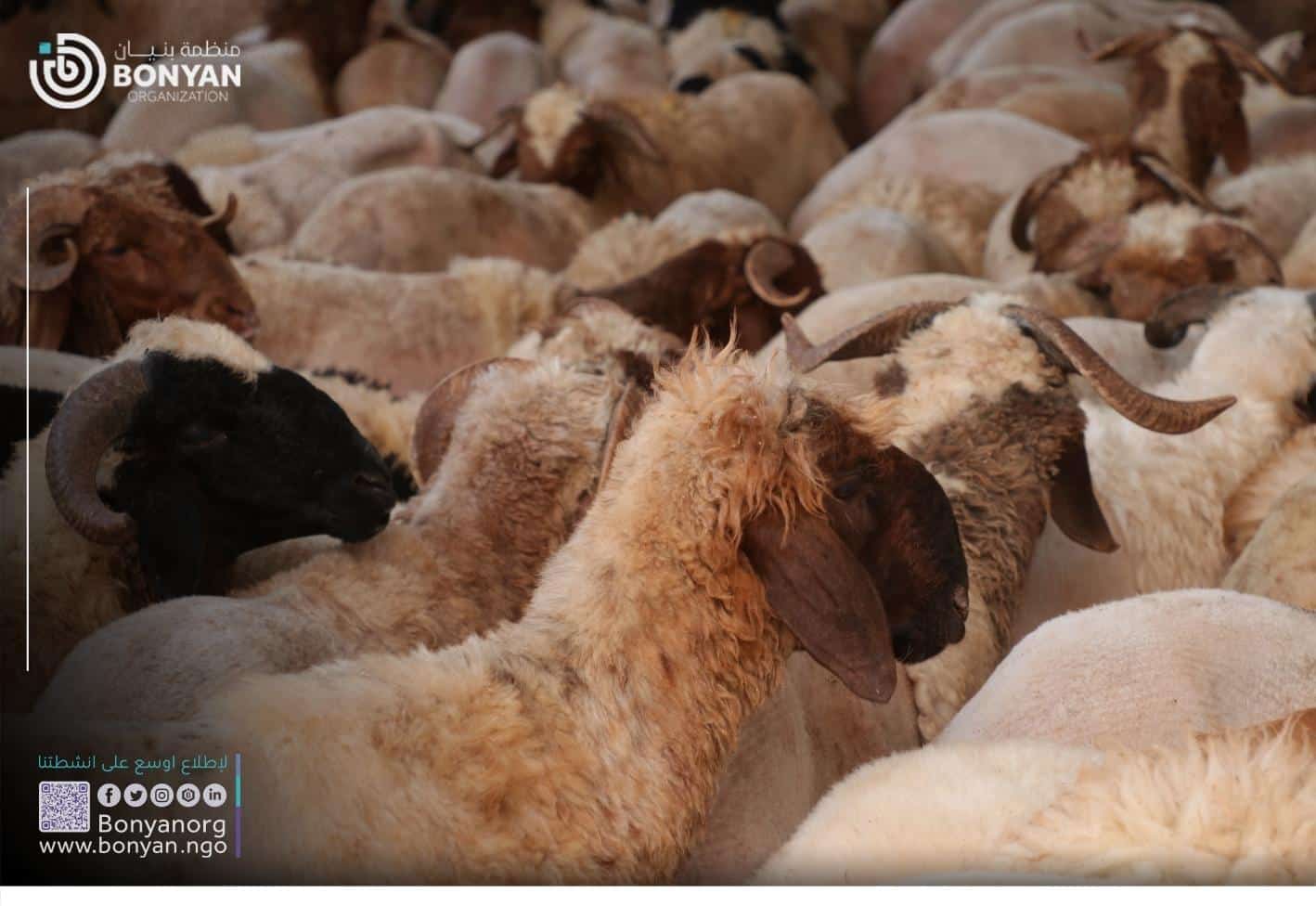When a child is born, it is a Sunnah of Prophet Muhammad (PBUH) to sacrifice livestock and distribute the meat among friends and relatives and to needy community members.
This is called Aqiqah and is a virtuous act in Islam.
Purpose of Aqiqah
- God and His Messenger decreed the Aqiqah for the newborn for several reasons:
- To approach God Almighty.
- Praise the blessings He has given.
In the pre-Islamic period, this was known among the Arabs, and when Islam came, it transformed this custom into a ritual for approaching God.
The Prophet (PBUH) practiced this from Al-Hassan, and Al-Hussein is “two rams,”.
From here on, it became a confirmed Sunnah.

- To educate the Muslims to oppose the polytheists and not imitate them.
- In the Sunnah in the ‘Aqeeqah, a Muslim should fight the polytheists who in the pre-Islamic era, smeared the head of a boy with the blood of a sacrifice, according to their custom of believing in the blessing, and Islam came to prohibit this as a sin.
- It is considered a ransom to save the newborn from the calamity of life from birth in this world. Following the example of our Prophet Ibrahim -peace be upon him- inherited from the redemption of Ismail through the ram, and with which God redeemed him.
- The ‘Aqiqah is a revival of the Sunnah of the Prophet (PBUH), and this returns to us as a matter of sustenance and blessing, and that the birth of the Prophet is hoped for good in this world and the hereafter.
Aqiqah Rules
- On the seventh day after birth, the child’s head is shaved.
- The baby is given a taste of honey to reflect the sweetness of the Qur’an.
- Once Aqiqah has purified a newborn, he or she should stay faithful to Allah and the teachings of the Prophet Muhammad.
Aqiqah rules for baby boy
The rules for performing an Aqiqah for baby boys are different from those for girls. For boys, the following rules apply:
- – The Aqiqah should be performed on the 7th day after birth. However, if this day falls on a Friday, then it should be done on the following Saturday instead.
- It’s important for Muslims to have their baby’s hair cut before celebrating their Aqiqah. The haircut symbolizes purification and readiness for prayer and other religious rituals.
- 2 sacrifices are offered for each male child
Aqiqah rules for baby Girl
The rules of Aqiqah for a girl are the same as for a male, with the difference that only one sacrifice is sufficient

Aqiqah ceremony
An Aqiqah ceremony is a Muslim tradition that celebrates the birth of a child. It is usually done on the seventh day after the baby’s birth. The ceremony starts with an animal sacrifice and ends with a feast for all family members and friends.
The animal sacrifice at an Aqiqah ceremony is traditionally made by cutting the throat of a lamb or goat and letting it bleed out, but some people use other animals instead, such as cows or Camel.
Types of The Slaughtered Animals
Two animals were to be sacrificed for the birth of a boy, and one animal for a girl.
However, there is no limit to how many animals you can sacrifice.
Aisha (RA) reported Allah’s Messenger (saw) said’
‘Slaughter for a boy two compatible sheep and for a girl, just one. It does not matter whether the sheep are male or female’.
The Animal’s Condition for Aqiqah
When offering Aqiqah, the same rules apply to Qurbani.
Animals must be of a certain age and eligibility.
For lambs, this is a minimum of 6 months, and for goats, 12 months.
The animals should also be healthy with no defects like broken horns or teeth.
It is recommended to offer the best animal you can find.
You can Donate Qurbani online
Ruling on a Delayed Aqiqah

The Aqiqah is a Sunnah for the child’s guardian if he is able.
If it is a son, two sheep are sacrificed, and if it is a girl, a single sheep.
The sacrifice is made seven days after the child’s birth, and the child’s head is shaved.
Samra bin Jundub RA reported that the Prophet (P.B.U.H) said, “A boy is pledged by his ‘Aqiqah, so slaughter for him on the seventh day, and do it in the name of Allah” (Transmitted by Al Tirmidhi and Abu Dawoud).
If it is not done on the seventh day, it should be done on the fourteenth day.
If it is not done on the fourteenth day, it should be done on the twenty-first day.
If it is delayed, then it is Sunnah for his guardian to sacrifice for him before he reaches puberty, and if he reaches puberty and no one has made an ‘Aqiqah for him, he should do it himself.
Read More:
- Make A Child Smile In Eid Al-Fitr
- Education And Constantly Crisis In Palestine
- Things You Can Do Till The Sunset Of Ramadan Days
- The Impact Of War On Children
Donate Your Aqiah to Needy People
You can search the Islamic associations in your area, and they can help you find the needy in your area, or they can give it to them directly.
You can search the associations either through your location or the country where the Aqiqah is distributed.
FAQ
How is Aqiqah Performed in Islam?
An Aqiqah ceremony is a celebration in which the meat of the sacrificed animal is cooked and shared with family, friends, and needy members of the community.
What Are The Rules of Aqiqah?
– On the seventh day after birth, the child’s head is shaved.
– The baby is given a taste of honey to reflect the sweetness of the Qur’an.
– Once Aqiqah has purified a child, he or she should try to stay faithful to Allah and the teachings of the Prophet Muhammad.
What Are the Three Parts of The Aqiqah?
– First, the child’s head is shaved. In a number of cultures and religions, cutting off the hair symbolizes a new spiritual status. – Second, there is the formal naming of the child.- Finally, a goat or sheep is sacrificed.
Is Aqiqah Obligatory?
The Aqiqah is sunnah and mustahabb; it is not obligatory at all, so there is no sin on the one who does not do it.



